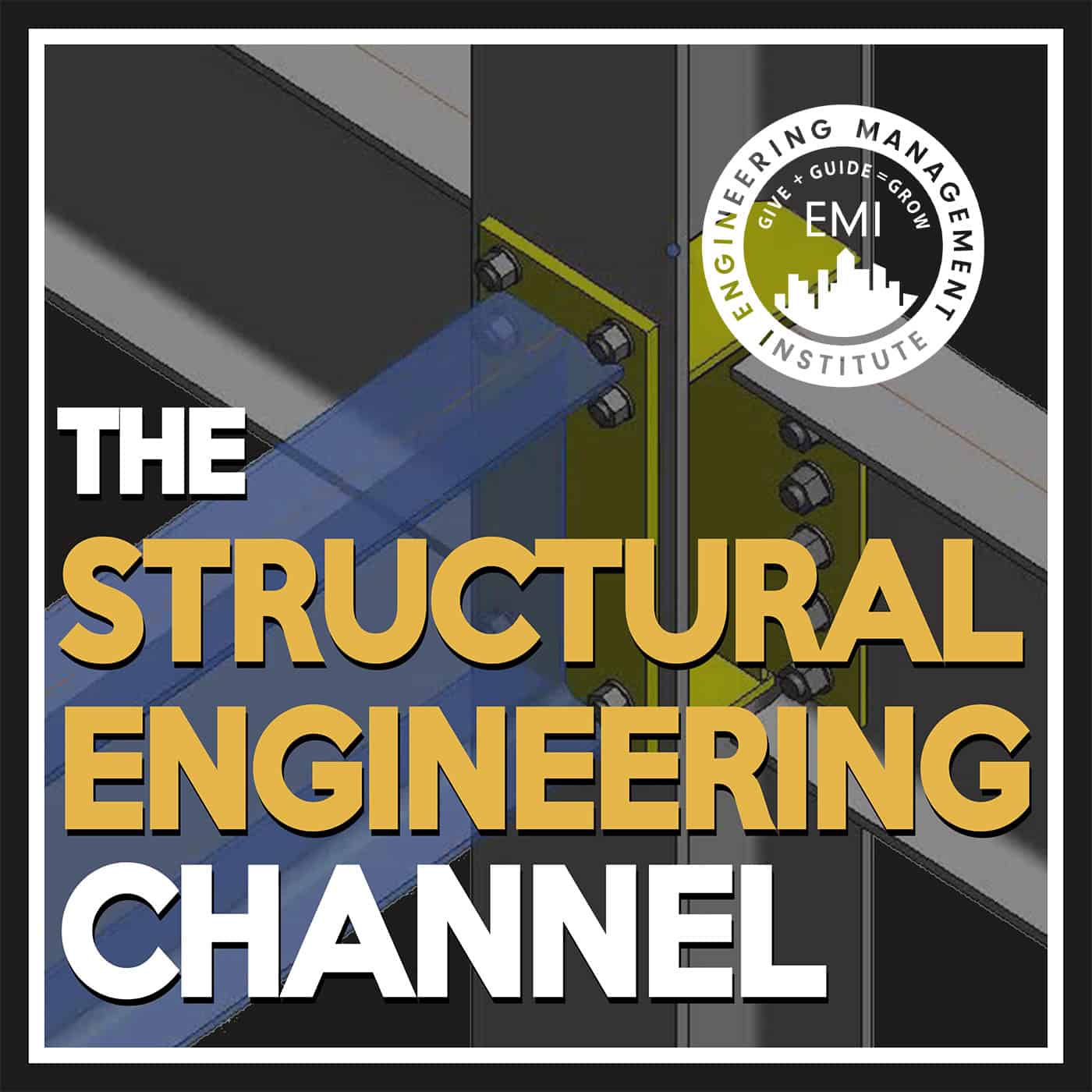TSEC 107: How to Run a Successful 24/7 Structural Engineering Business
Description
In this episode, we talk with Scott Wible, P.E., S.E., a structural engineer and owner at Wible Engineering LLC, about the challenges of establishing a structural engineering business, and how the power of mentorship and the impact of networking can help you in building a successful firm.
***The video version of this episode can be viewed here.***
Engineering Quotes:
Here Are Some of the Questions We Ask Scott:
At what point did you feel confident enough to start your structural engineering firm?
What was the appeal of owning your own structural engineering business from the very beginning?
What skills did you identify as needing improvement, and how did you develop them on your journey to becoming a structural engineering business owner?
Do you think the possibilities of what can be accomplished in today's world with today's technology are even more advanced than they were a few years ago?
Can you talk about the importance of networking and how it helped you start your business?
Do you have any tips for structural engineers on business development?
How did you find your niche in the structural engineering industry?
What did you learn about being an expert and running your own business, and what were some of the key obstacles and rewards?
How did your mentorship relationship help you start your own business?
What advice can you give to engineers looking to start their own structural engineering business?
Here Are Some of the Key Points Discussed About How to Run a Successful 24/7 Structural Engineering Business:
A structural engineer may feel ready to start their firm when they have a strong client base, the necessary experience, and the legal qualifications. This could happen after several years of working in the industry or even earlier if the engineer has a strong network of contacts and a clear vision for their business.
The appeal of being the owner of a structural engineering firm is the opportunity to use one's engineering skills to make a difference in the world. Structural engineers are responsible for designing and ensuring the safety of buildings and other structures. As the owner of a firm, one has the freedom to choose projects that they are passionate about and that they believe will make a positive impact. Owning a structural engineering business can be a very rewarding career financially.
To start a structural engineering business, you need technical, business, communication, leadership, organizational, and networking skills. Take advantage of the many resources available to develop your skills and build your network.
Reading books can help people improve their lives and achieve their goals. The book, "The 4-Hour Workweek" by Tim Ferriss, is specifically recommended, as it has helped people prepare for remote work and start their own companies. Audiobooks are also a great way to learn new skills while doing other activities.
Networking is important for structural engineers who want to move up in their careers, whether they want to start their own business or become a manager. By building relationships with clients and other professionals, structural engineers can get their foot in the door and get more work. This can lead to promotions and increased responsibility.
To develop business skills and move up in a structural engineering career, you can work hard and prove yourself in many ways, such as volunteering for extra projects, taking on leadership roles, or publishing work in industry journals. You can build strong relationships with the owners and principals of the company by getting to know them on a personal level, attending company events, or volunteering for projects that they are interested in.
To find your niche in the structural engineering industry,
More Episodes
In this episode, we talk with Ryan Jeansonne, P.E., civil structural engineer at Titan Delta, who shares powerful insights on mentorship and continuous learning in engineering, inspiring both new and seasoned professionals to take bold, impactful steps in their careers.
***The video version of...
Published 11/14/24
Published 11/14/24
In this episode, we speak with Farshad Mirshafiei, Ph.D., P.Eng., CEO and co-founder of Sensequake, about how advanced technologies are transforming structural assessments and redefining safety and infrastructure resilience in buildings and critical systems.
***The video version of this...
Published 10/31/24


